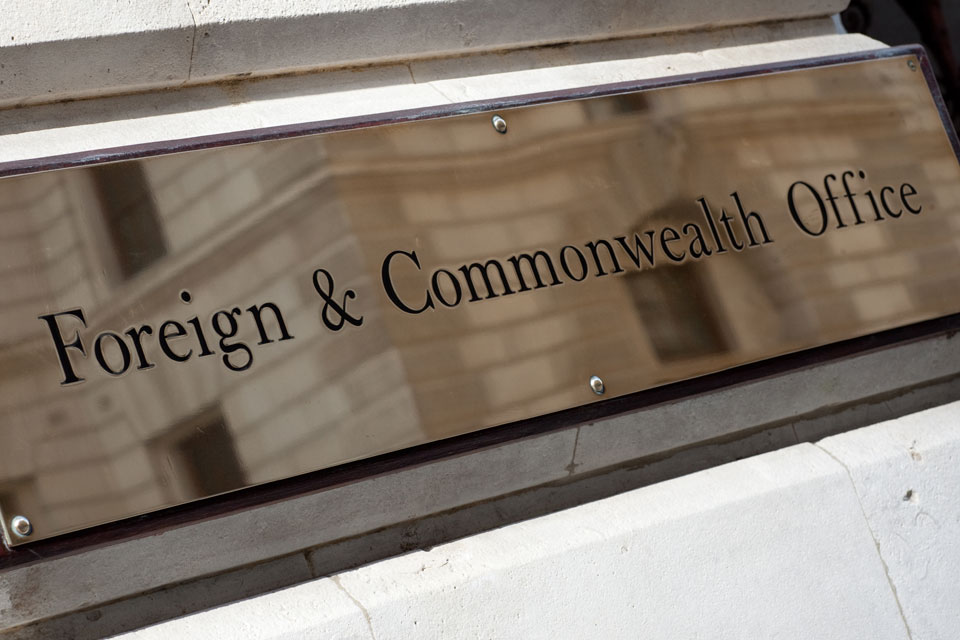Securing a peaceful future for Israelis and Palestinians
Statement by Ambassador Jonathan Allen at the Security Council briefing on the situation in the Middle East

Thank you, Mr President. Thank you also to SRSG Mladenov for his briefing. I would like to begin by welcoming the swearing in of the new Israeli Government. The United Kingdom looks forward to working with this government on a whole range of bilateral and regional issues, not least peace in the Middle East.
We do, however, remain deeply concerned about the prospects of annexation of parts of the West Bank. Annexation of any part of the West Bank by Israel would be a clear violation of international law and would profoundly damage efforts to restart peace negotiations. We instead encourage the new Government of Israel and the Palestinian Authority to work towards a lasting agreement based on a two-state solution.
To this end, the United Kingdom appreciates the proposals which the Palestinian Authority has made for renewed dialogue. As part of this, we look to the Palestinian leadership to offer detailed proposals for a settlement, and find a means of restarting discussions with the United States, who retain a key role in the Middle East Peace Process.
Mr President, we are disappointed by the announcement by President Abbas yesterday. Now is the time for more cooperation between Israel and the Palestinian Authority, not less. Security cooperation is particularly important. Instability is in no one’s interest, except extremists. It is critical that both Israel and the Palestinian Authority work together to meet their obligations under the Oslo Accords, and refrain from unilateral actions that could set back the cause of peace.
The United Kingdom remains committed to achieving a negotiated settlement leading to a safe and secure Israel living alongside a viable and sovereign Palestinian state; based on 1967 borders with agreed land swaps, Jerusalem as the shared capital of both states, and a just, fair, agreed and realistic settlement for refugees.
We reiterate our call on the Government of Israel to halt any activity that makes peace more difficult to achieve. This includes advancement of settlement plans including in Givat Hamatos, Har Homa, and in E1. All settlements are illegal under International Humanitarian Law. Settlement construction in these highly sensitive areas threatens to further undermine the viability of a future Palestinian state with its capital in East Jerusalem. We also remain concerned by the continued demolition of Palestinian property, and repeated incidents of settler violence. Perpetrators must be held to account.
At the same time, we call on the Palestinian Authority to tackle incitement and anti-Semitism which create a non-conducive environment for cooperation and negotiations. The United Kindgom strongly condemns the use of racist, hateful or anti-Semitic language.
Mr President, we remain deeply concerned by the ongoing cycle of violence. Recent weeks have seen the killing of an IDF soldier in Jenin and the killing of a number of Palestinians across the West Bank. Among those Palestinians killed was 15-year-old Zaid Al-Qaysiya from Hebron who died as a result of IDF live fire. Every Israeli and Palestinian has the right to live in peace and security. The ongoing violence underlines that a just and lasting resolution that ends the occupation and delivers peace for both Israelis and Palestinians is long overdue. We urge continued calm in Gaza. Indiscriminate attacks against civilians are unacceptable.
Finally, Mr President, I would like to thank the Government of Israel for pledging on behalf of Israel $60 million to the international fund for vaccines at the Coalition for Epidemic Preparedness Innovations (CEPI) Summit on 4 May. During this global crisis, cooperation is vital, and we continue to welcome the ongoing cooperation between the Government of Israel and the Palestinian Authority towards tackling COVID-19, as well as the important part played by the United Nations.
It is our hope that the positive cooperation we have seen in response to COVID-19 will translate into cooperation to achieve a negotiated settlement to the Middle East peace process.